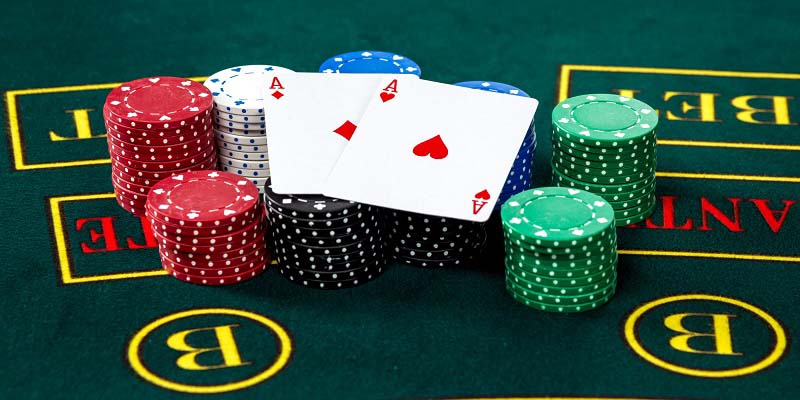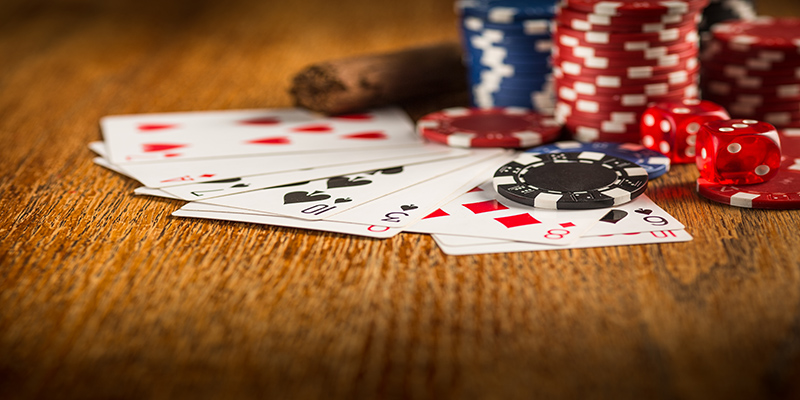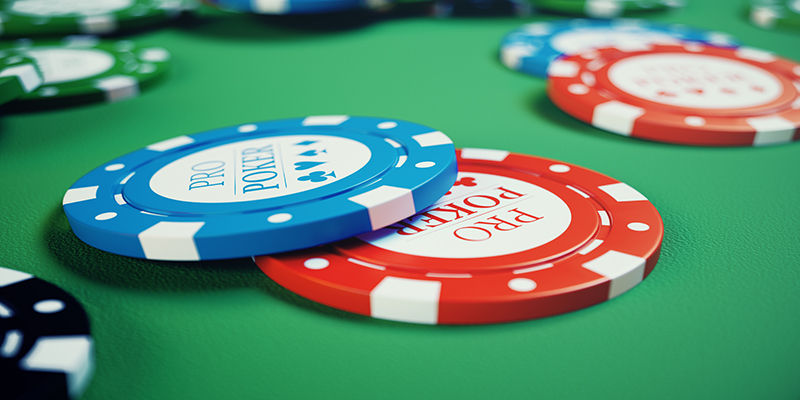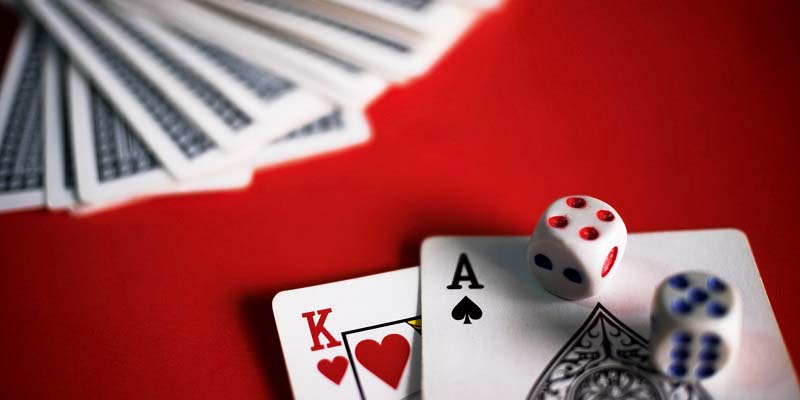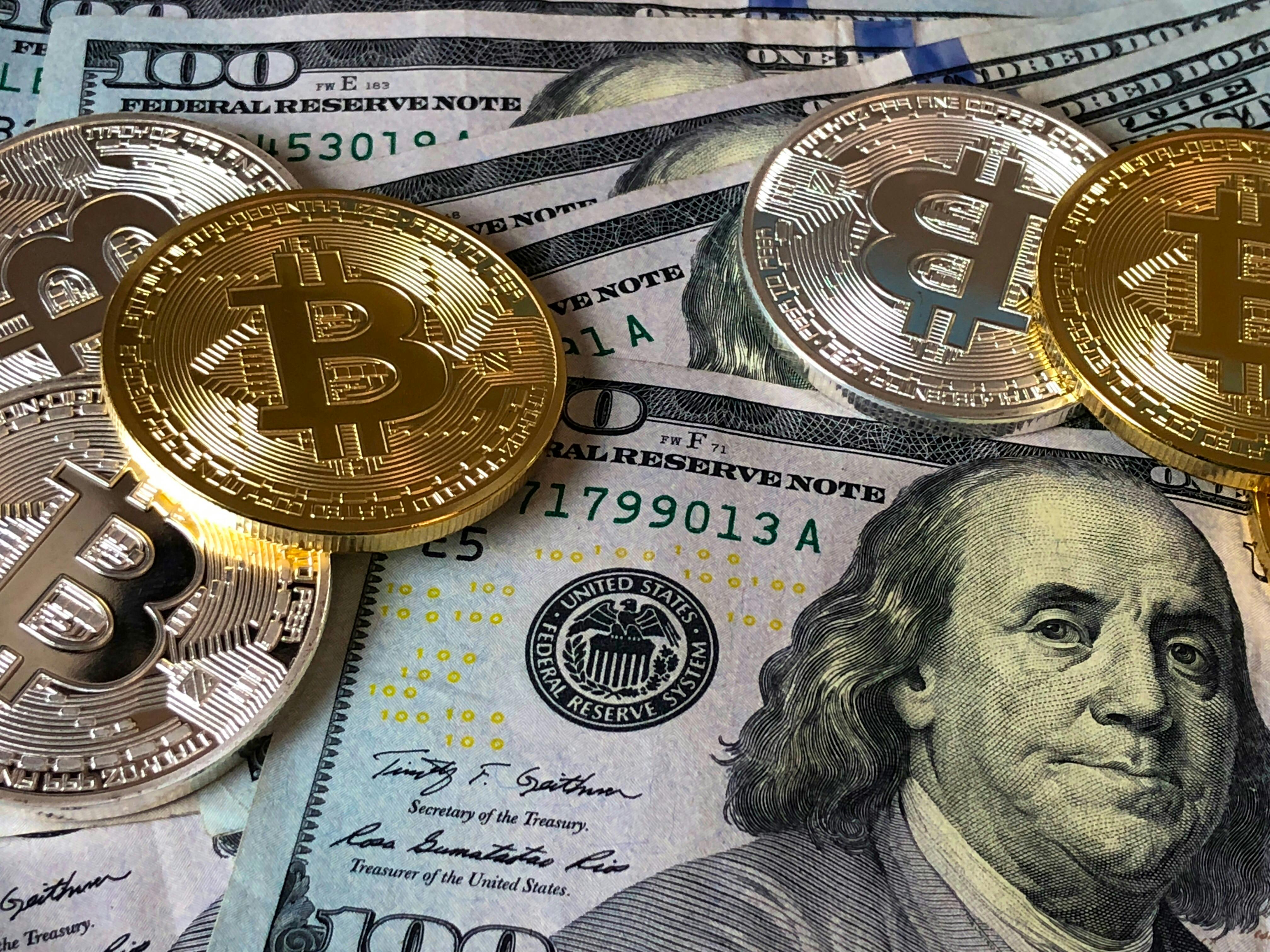What is Slow Rolling in Poker?
"Slow roll in Poker" is regarded as the most common activity included in poker etiquette and a huge no-no by most players. The article will describe in detail what is considered slow roll behavior by players, how it adversely affects the game and other players, and how to avoid breaking this unwritten rule.
What is Slow Rolling in Poker?

A slow roll behavior is considered as when you have a really powerful hand but take a long time to make an easy call when the dealer says it’s your turn. Also, it could be referred to as when you, somehow, know you have the best hand but take a lot of time revealing it at a showdown.
In addition, the behavior of pretending to be an unhappy, upset, or conceding loss at any moment after the wager or all-in before your winning hand is revealed is also considered a slow roll.
Slow Roll Examples
The following behavior is considered one of the common slow roll actions in Poker.
Supposing you had King of Hearts, Queen of Heart, and three hearts in the community cards.
Your opponent calls your bet.
Because they did not raise, you may be certain that you have the better hand, even if it isn't the absolute nuts.
But, instead of instantly turning your hand, you pause and wait for them to disclose their holdings, giving them the idea that they have the winner.
Read more: How to Win at Blackjack Every Time? The Expert's Instruction
Why Slow Rolling In Poker Is A Problem?
Slow rolling is frowned upon since it deceives a player just before he or she is about to lose a large sum of money or chips at the poker table. It adds extra stress to an already stressful situation for a player. Simply put, delaying presenting a good hand gives your opponent false faith that the pot will go his way. Thus, nothing is more vicious than such an action at a poker table.
Why Do Slow Roll Affect Badly Poker Etiquette
Poker is considered a sport, and the poker ritual somehow embodies what is known as the spirit of fair play in sports. In sports games, no matter if you win or lose, if you play your best and respect your opponent, you will earn respect from your opponent and the audience on the field. And that is absolutely true in the case of poker.
The only benefit of slow-rolling is to annoy and irritate your opponents. If you have the super strong hand, you know you are winning the game, therefore teasing them by making them believe they're going to win the pot is plain terrible sportsmanship. So, it's just about good manners and respect for your opponents.
Furthermore, waiting an eternity to display your hand slows down the entire game, which means everyone at the table suffers. As is typical at live tables, things go slowly. All in all, slow rolling in poker yields no beneficial results.
If you're deliberately slow-rolling and your opponent gets mad at you, they have good reason to do so. However, if your opponent is just upset and doesn't want to look at you anymore, it means that your behavior has seriously hurt their feelings, and you will never be forgiven. Believe us when we say so.
Is Slow Rolling Illegal?
There is typically no specific rule that specifies it is unlawful to take a lengthy time to call or turn over your cards with a powerful hand. Even so, sluggish rolling in the amateur poker room might result in a penalty or worse. Such behavior may increase undue animosity between players.
If your opponent is a hot-tempered player, your slow roll can completely make them lose their temper and drag you into an unnecessary brawl. In fact, we've seen far worse situations where poker players intentionally provoked and humiliated their opponents through their slow roll behavior.
Instead of showing disrespect to the opponent like that, you should concentrate on defeating your opponents rather than making them detest you for the rest of their lives. Most poker players consider slow-rolling someone to be heinous conduct and they can hardly seem happy later with people who make fun of them.
How To Avoid Accidental Slow Rolls
Not everything in poker is black and white, and we all get confused from time to time. Beginner players can absolutely make slow-rolling mistakes when participating in poker. If this is the case, please try to explain that you do not understand what slow roll is, and we are sure that your players will be happy to explain it to you instead of hating you
In case you are an experienced player, you should, however, aim to avoid even an accidental slow roll by keeping the following things in your mind:
- When it's your turn, muck your hand or flip your cards over quickly with no hesitation.
- If you know you have the nuts, turn your hand first unless there is a good reason not to. But, whatever the reason is, don't let your opponents wait for too long.
- When the player says "you've got it" or "hey, let me see how you defeat me" or something like that, be courteous and turn your hand over.
See, being polite and behaving like a gentleman in poker games is not that hard. Make your opponents happy with you even if they lose to you, and you will both win the pot and win the hearts of your opponents. Regardless of the outcome of the remaining games, your opponent will gladly shake your hand and invite you to play again next time if you behave civilly in the game.
Read more: What Is Stadium Blackjack? Rules & How to Play
Final Word – Slow Rolling
Slow rolling is basically not breaking the rules, but it will hurt your opponent's feelings and make the game less comfortable and enjoyable. Live poker is also about having good interaction skills. Being pleasant and polite will almost certainly pay you in the long term, in more ways than you may realize if you're just getting started.
In the end, you surely don't want to be that person at the table who frustrates everyone else and who no one wants to play with. We are certain that being regarded as a jerk will not improve your win rate or gain you any friends. Thus, never deliberately slow roll when playing live poker because it will not help you to earn any actual benefit.








